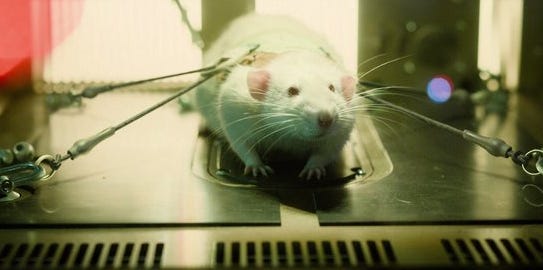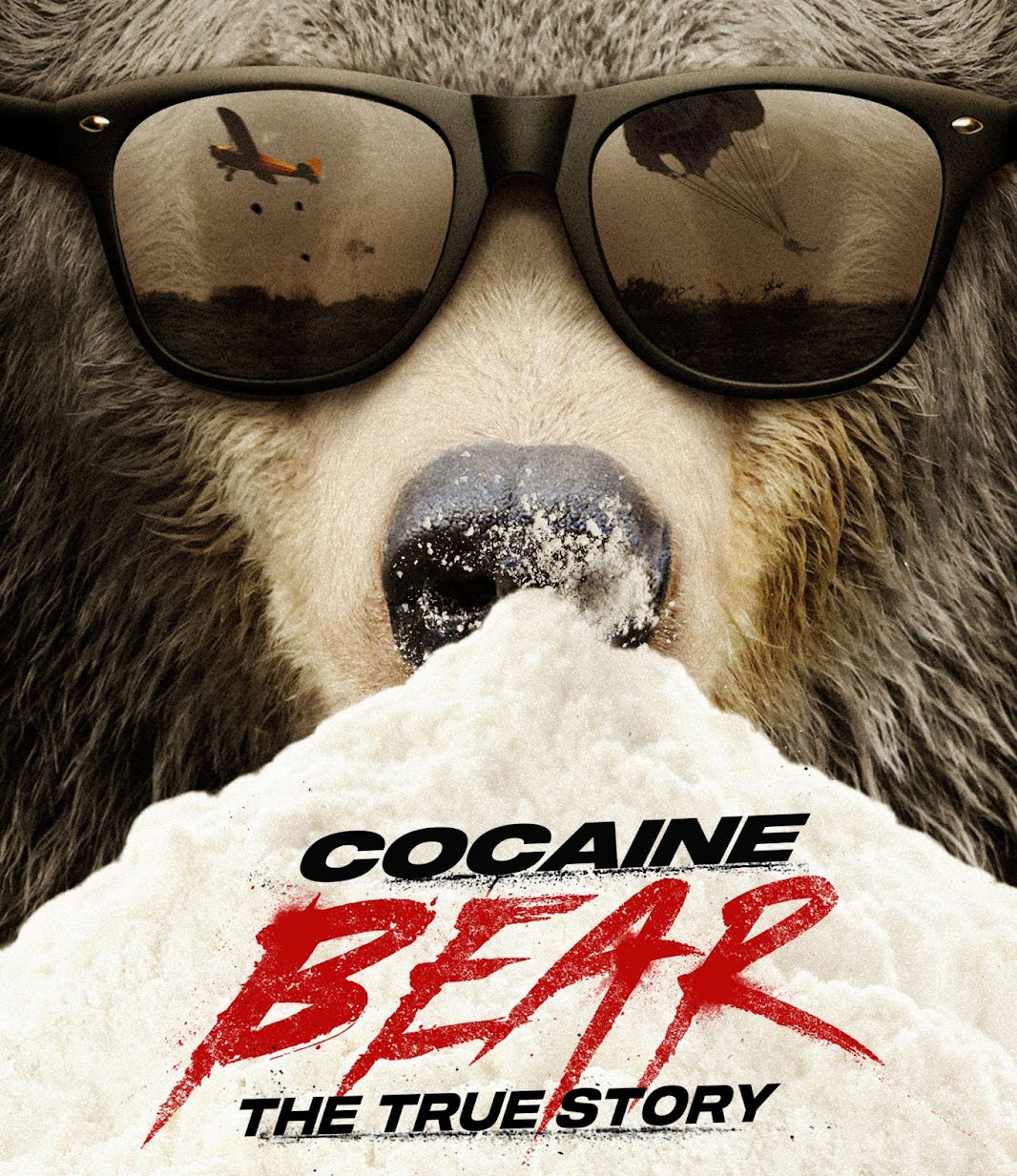Are you a Cocaine Mouse?
Would you rather live in the real, imperfect world or a sucralose illusion? This week in Happiness
Hello, dear reader! It's been a while. I'm back now, and while I was away, I thought about the illusions we inhabit.
We are lab rats living in a world of illusions—some outside our heads, some inside—and they feed into one another. The digital world is one of these illusions. Our monkey brains can’t distinguish very well between what happens on a screen and the outside world. You are a pleasure-seeking organism, and the behavior that is constantly and instantly rewarded is scrolling and checking the next notification. However, it is a simulacrum that provides a semblance of connection, joy, and life. It gives you the idea that things are happening in your life—or at least, your brain thinks so.
This kind of living is encapsulated by a quote from Alan Watts, and it existed before social media even came into being. “A great occasion is somehow spoiled for us unless photographed. And to read about it the next day in the newspaper is oddly more fun for us than the original event”. Before social media even existed, Alan Watts was talking about groups of people who have forgone the real world for one of illusions. If it is possible with newspapers, imagine how bad it gets with social media.
First, Cocaine Bear, and now this?
But a study on mice offers a clue as to how to get out of the tunnel.
If you put two mice in different environments — one in a rich environment where they can explore, and the other in a deprived environment — and then give both access to water laced with cocaine, the obvious happens. The mouse in the deprived environment turns to cocaine more than its luckier counterpart. It goes deeper than that: "We have compelling behavioral evidence that self-directed exploration and learning altered their reward systems so that, when they experienced cocaine, it had less of an impact on their brains." So, their brains were more resilient to cocaine based on a richer daily life.
The same is true for humans: The richer your life, the better you can avoid addiction.
All of this is external and environmental. Curating a rich external life will prevent you from succumbing to physical temptations. However, your internal life will also play a role. Modern life pulls us out of the real world, and there are so many things to worry about. You ruminate about the past or the future, from the mundane—"What will I have for dinner?"—to the maladaptive—"I’m not smart enough to do my dream job." Comparison too is a farce because they leave the present moment for a past or future that does not exist right now. It's all a fantasy that occurs in your brain. To crank up the craziness, you can compare your experience to someone else's. But this is a delusion. You will never truly know what it's like to be someone else. It's literally impossible. It doesn't matter if you're an "empath" or have a lot of mirror neurons; you'll still never know. So, you ruin the good present by comparing it to a range of impossibilities.
The only thing that really exists is the present moment. Any other kind of thinking is either torture or masturbation. Some torture and masturbation are probably inevitable, but we are so exhausted today because the modern mind tortures itself all day long. It's no wonder we turn to easy gratification at the end of the day; we don't have the energy for much more.
Face the reality of the world and of your mind, or don't. I'm not your mom. But do it for yourself; you'll be happier for it.
Prison Break: Escaping the external illusion
This comes down to learning to live. It means putting yourself out there, falling on your face, and being disappointed until it no longer matters. My semester abroad is now coming to an end, but that's what happened. It took me a while to find my people, and I found them by accident. I had planned to go surfing with a friend, but he bailed on me the morning of. I was like, "Alright, that's fine. Fuck it. I'll go anyway." There, I met a roommate of one of his friends—three degrees of separation at this point—and we got along, so I asked her out for coffee. She became one of my closest friends here. After surfing, we went to a restaurant to get some food and ran into more people. I asked one of them if they wanted to get a beer, but instead, I was invited to a party. It's all about going out there, trying things, meeting people, asking people to get coffee with you, getting rejected, not vibing with people, and feeling sad. Until everything clicks, you find your people, and you're living life to the fullest. When you reach this point, a beautiful thing happens: You forget the addictions that once held you back.
Prison Break 2: Escaping the Illusions Within
These illusions also require time and attention. They require breathing, slowness, and being in the moment. They require you to question your thoughts. Is this helpful right now? Am I in the moment, or am I torturing myself? Then, you come back to your breath because that is all there is.
In conclusion, illusions can be pleasurable, but they would not persist if they were not. The problem is that they contain latent pain. Get out while you can.
More from Allan Watts:
https://www.futurity.org/mice-addiction-cocaine-959182/



